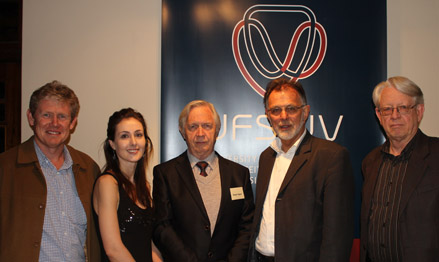Latest News Archive
Please select Category, Year, and then Month to display items
01 July 2021
|
Story Dikgapane Makhetha
|
Photo Supplied

This year, the young people of South Africa celebrated 45 years of the annual commemoration of
Youth Day. The University of the Free State (UFS)
Community Engagement (CE) office on the
Qwaqwa Campus has engaged a number of stakeholders in the call to use football as a means of bringing people together, transforming lives, and enthusing communities. Through partnerships, community organisations have great potential to create opportunities for breaking down barriers and inspiring social cohesion, initiating enablement through the development of social projects, and promoting education and health awareness.
On 16 June this year, local community organisations collaborated in the hosting of a soccer event for the youth of Qwaqwa at the FIFA Football for Hope Stadium in Tsheseng.
The Agape Foundation for Community Development,
Love Life,
Right to Care,
Youth in Action, Qwaqwa FIFA Project, and the Tsheseng Athletics Club were all stakeholders who diligently joined forces to ensure the successful launch of the tournament. Community development practitioners, who are trainees in the UFS Qwaqwa Department of Community Development, were garbed in departmental branded gear and have cautiously facilitated adherence to COVID-19 protocols. About 250 people, including football fans and participants, attended and enjoyed the entertaining games. Through the partnered recreational project, the Qwaqwa Campus CE office responded to the 2021 Youth Day theme: ‘Growing Youth Employment for an inclusive and transformed society’, by enhancing opportunities for networking among stakeholders. Football is popularly known for promoting transformational social projects in diverse communities across the globe.
Supplementum analyses the San origin of South African place names
2013-09-25
|
 |
|
At the launch were, from the left: Prof Lucius Botes (Dean: Faculty of the Humanities), Christine van Deventer (SUN MeDIA), Prof Peter Raper (author), Prof Theodorus du Plessis (Head of Department: Linguistics and Language Practice), and Prof Dirk van den Berg (outgoing editor).
Photo: Jerry Mokoroane
25 September 2013 |
The Acta Academica Supplementum 2012 (2), under the outgoing editorship of Prof Dirk van den Berg, was launched on 16 September 2013. The author, Prof Peter Raper, is one of the leading place-name experts in South Africa. The Supplementum analyses the San origin of South African place names whereby different layers of language contact are exposed. For example, Dipodi (previously Jakkalsdraai), is an adaptation of the original San name. The first ‘di’ is the added Sotho preposition. ‘Po’ is equal to the San word ‘po’ (jackal) and the last ‘di’ equal to ‘/gi’ (to bend). Prof Raper’s research indicates that many place names carry evidence of various language shifts. By analysing these language layers, different phases of language contact are exposed. This research is instrumental in the preservation of a unique aspect of the South African cultural heritage.
Prof Raper is since 2011 Honorary Professor: Linguistics, in the Department of Language Management and Language Practice at the University of the Free State. He is one of South Africa’s leading toponymists. The fourth edition of the New Dictionary of Southern African Place Names, with Dr Lucie Möller and Prof Theodorus du Plessis as co-editors, is currently in the press. He is a member of the Commission for Toponymy of the International Geographical Union, as well as the Working Group for Toponymy of the International Cartographic Association, of which there are only ten members worldwide, and a member of the Editorial Advisory Board for the journal Names.